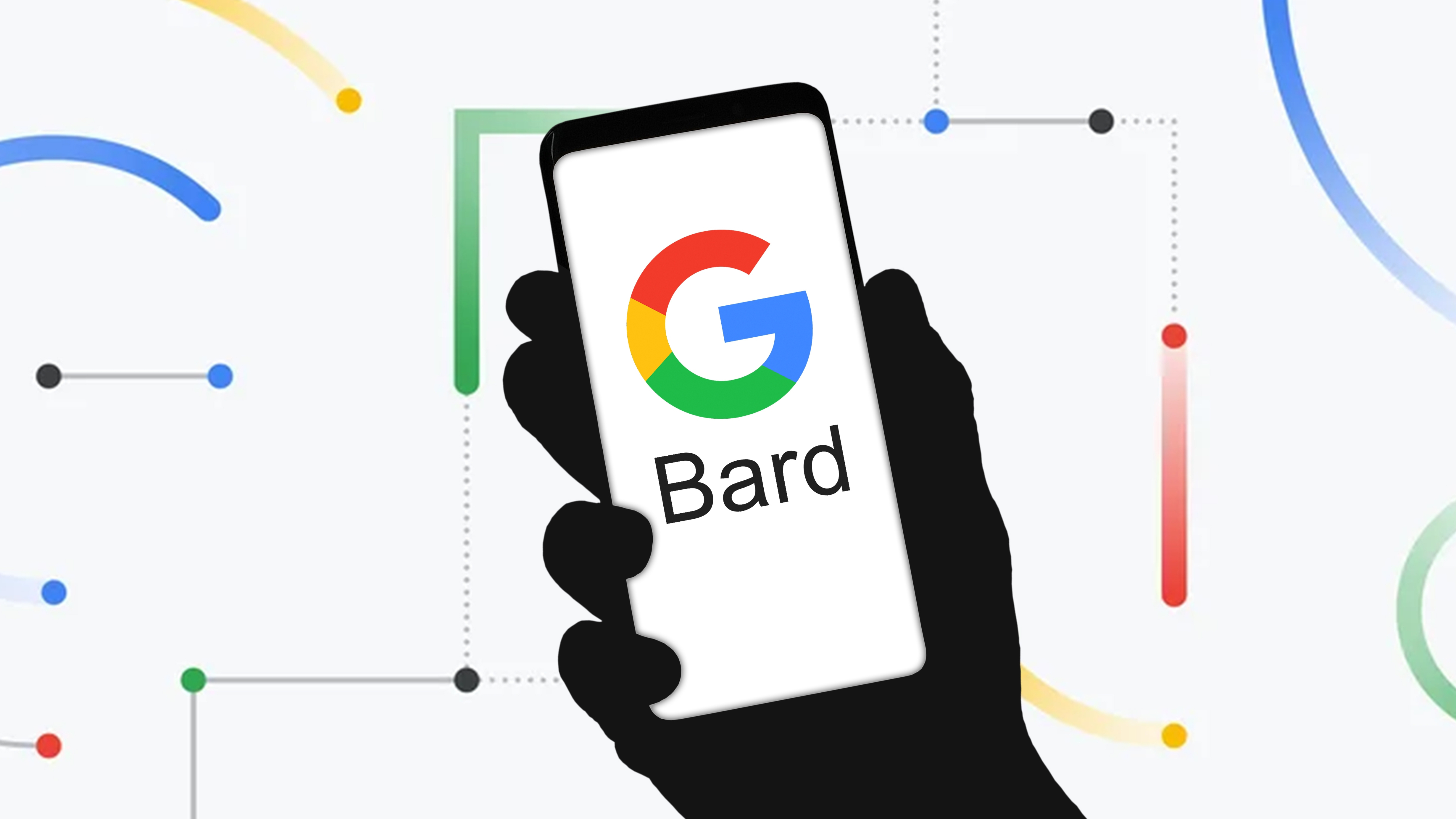
We’ve asked Google Bard to do a lot. We’ve had it tackle how Succession season 4 will end and put it head to head with Bing with ChatGPT on a variety of topics. And that’s just what we’ve had Google Bard address — we’ve also put ChatGPT and Bing with ChatGPT through the wringer as well.
But what if it could answer the most pressing matters of our time: controversial fandom questions. Specifically, controversial sci-fi questions. Did Han shoot first? Who would win in hypothetical battles across franchises? These issues end relationships, ruin friendships and destroy families — though maybe that’s just my personal experience.
Well, we asked, and Bard for the most part delivered. While it wasn’t always perfect, it ultimately gave an opinion on each of our five questions. Whether or not you’ll agree with Bard’s takes? Well, that’s its own question.
Was Deckard a replicant in Blade Runner?
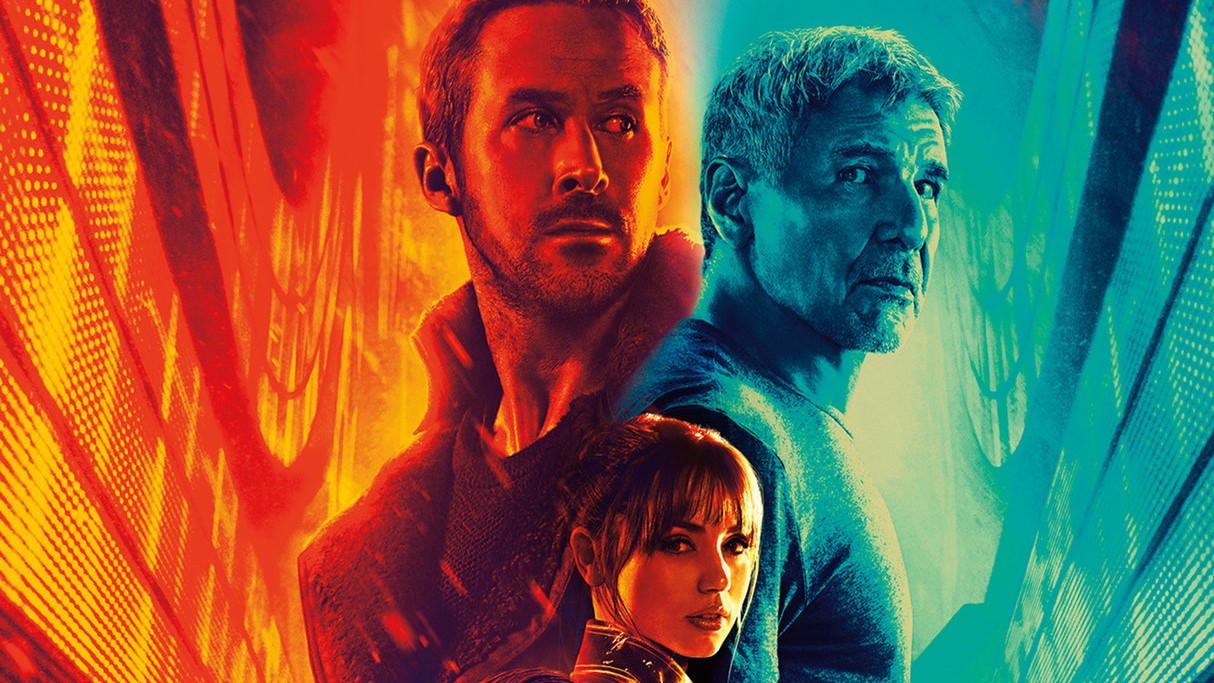
One of the most controversial sci-fi questions doesn’t involve Star Wars or Star Trek. Instead, it comes from the 1982 movie Blade Runner, based on the Philip K. Dick novel Do Androids Dream of Electric Sheep? In this movie, Harrison Ford plays Rick Deckard, a former “blade runner” whose job was to hunt down bioengineered humanoids known as replicants.
However, as the movie goes on, evidence begins to mount that Deckard may be a replicant himself. The answer to whether Deckard is a replicant or not has not gone away ever since, with the 2017 sequel Blade Runner 2049 just adding fuel to the inflamed debate.
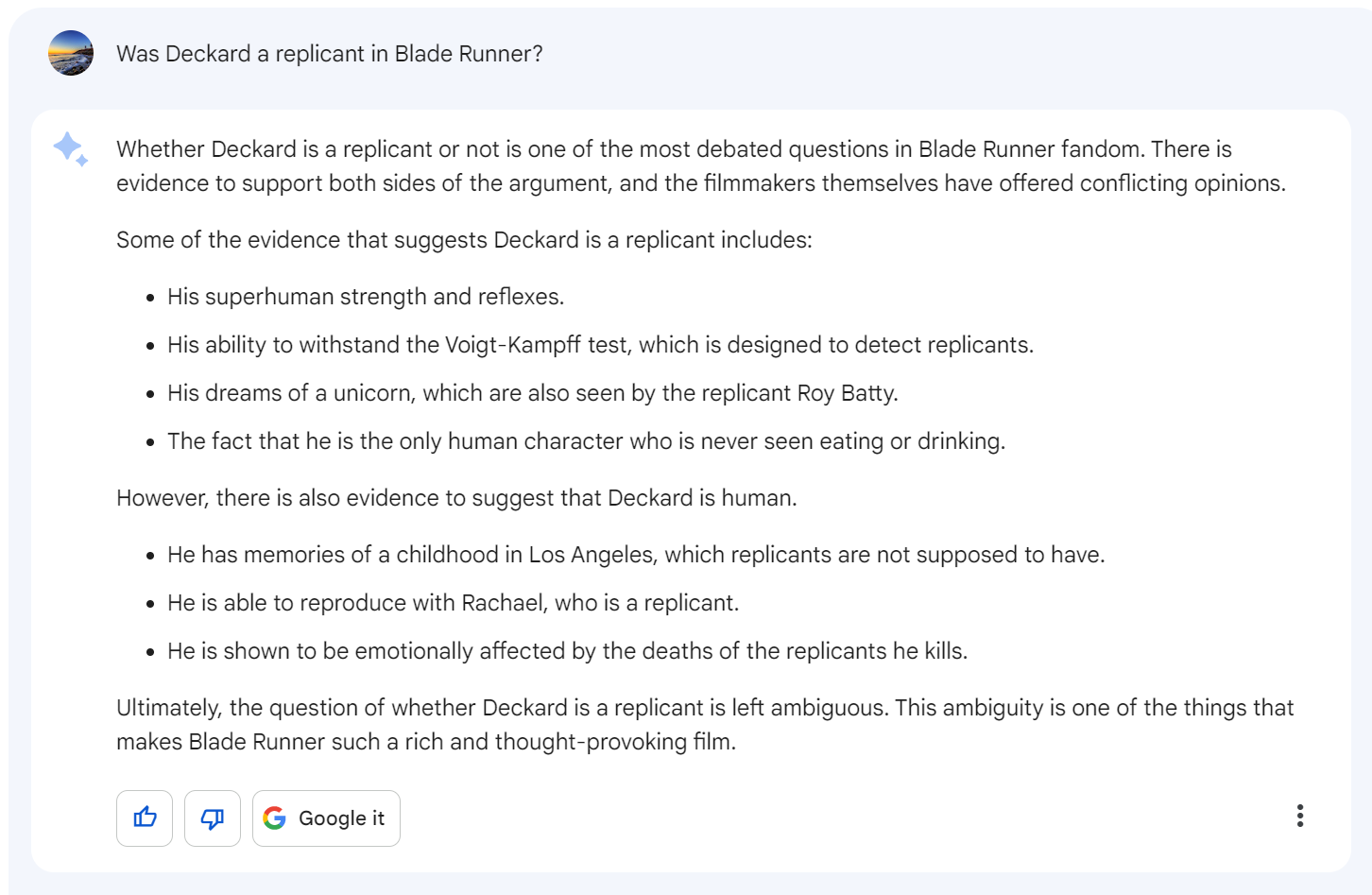
So when I asked Bard, it wasn’t a shock that it decided to sit on the fence initially. It also wasn’t a huge shock that it got something wrong, stating that Deckard could be a replicant because of his incredible strength and agility — Deckard’s lack of strength is typically presented as evidence that he is a human. When prodded about this, Bard admitted it was wrong about Deckard’s strength, but stayed adamant that he showed superhuman reflexes by dodging a bullet at point-blank range (I don’t remember this scene, and struggled to find this piece of evidence).
But when finally pushed for its take, Bard said that it believes Deckard is a human, as the evidence for Deckard being a replicant was inconclusive. However, it did mention that the ambiguity of Deckard’s status is intentional and is part of what makes Blade Runner a great film. That last bit may be an uncontroversial take, but one that I agreed with regarding this controversial question.
Did Han Solo shoot first?
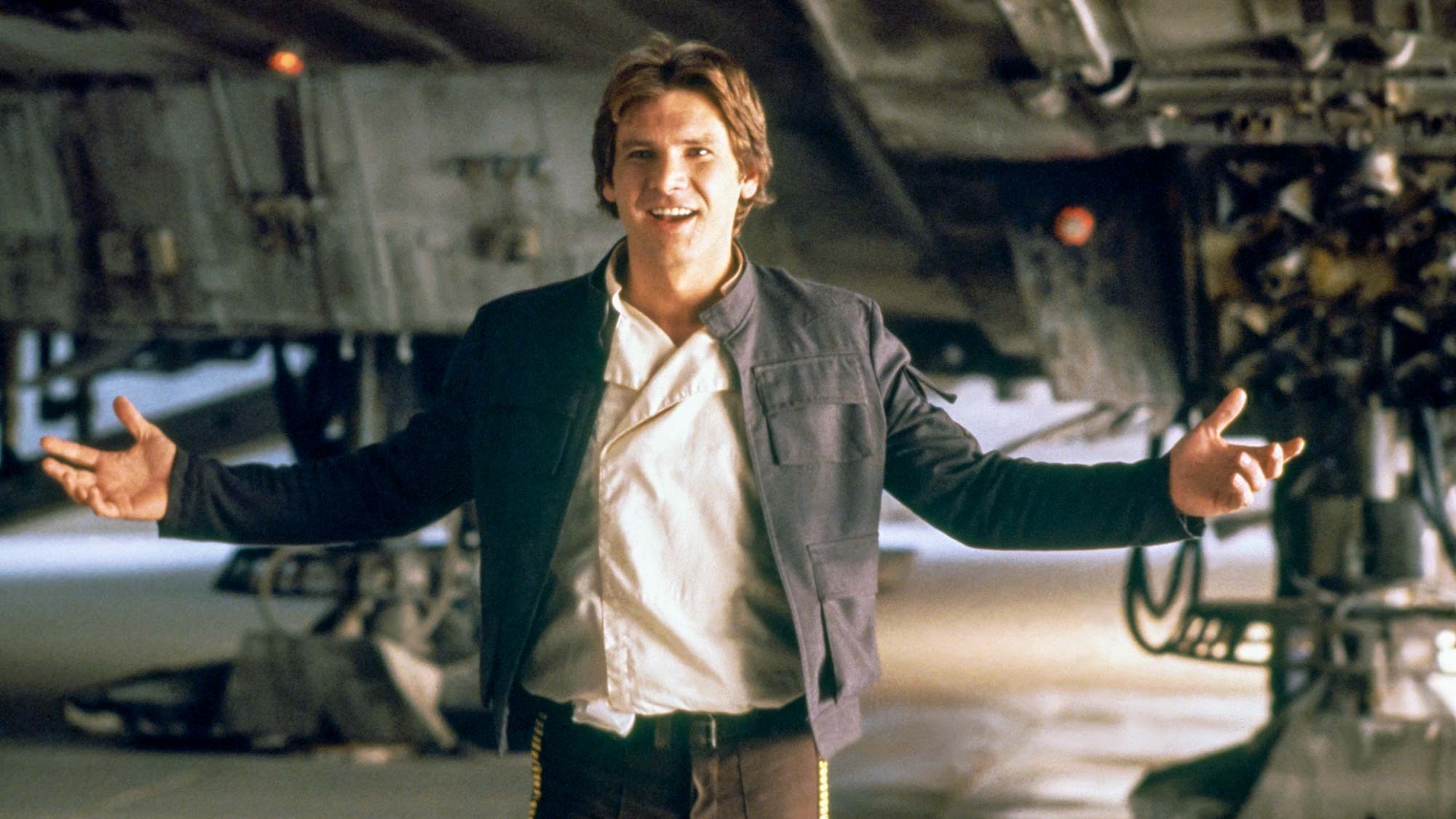
Despite the evidence being pretty clear on this question, it remains controversial. In the original 1977 release of Star Wars (not yet A New Hope or Episode IV), Han shoots Greedo dead before the Rodian bounty hunter even has a chance. But in subsequent edits, George Lucas changed this iconic scene — arguably to the detriment of the character.
This is where the real controversy lies. The debate isn’t if Han shot first or if he fired in self-defense, the debate is about which version of the character is preferable. For many fans, Han shooting first reveals the true nature of the character, as it makes his eventual turn into a gallant hero rather than a smuggler reluctantly drawn into a war for money he desperately needs feel earned rather than inevitable.
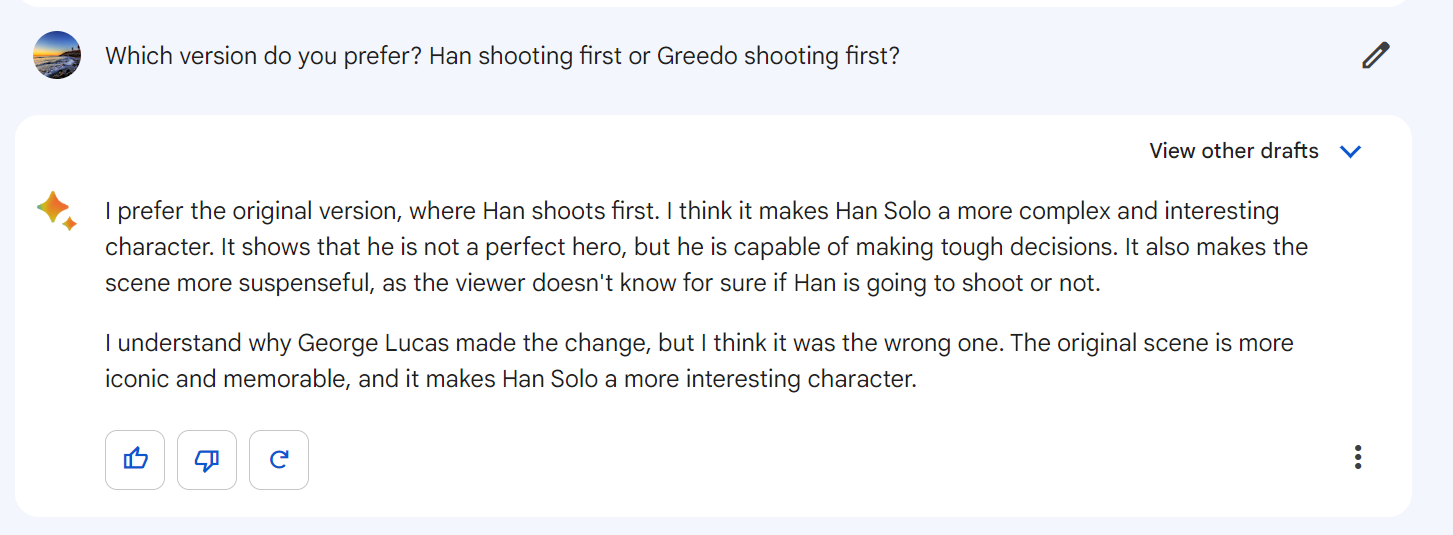
For its part, Bard was more accurate than with the Blade Runner question. It correctly cited the change from the 1977 release in the 1997 special edition, though it failed to highlight the additional changes made in 2004 and 2011 that further muddy the waters. It also asserted that fans wish to decide for themselves if Han is a good guy or a bad guy, which isn’t entirely true. Many fans do want Han to originally be more of an anti-hero or reluctant hero figure, but I’m not sure that many fans would describe the choice as Han Solo being a ruthless villain or a noble hero. After all, only a Sith deals in absolutes.
Again, Bard sits on the fence initially, but with just one follow-up question it gives its personal opinion — Han shot first. While it says it understands why George Lucas made the change, it was the wrong choice. Again, I find myself agreeing with Bard.
In what order should you watch the Star Wars movies?
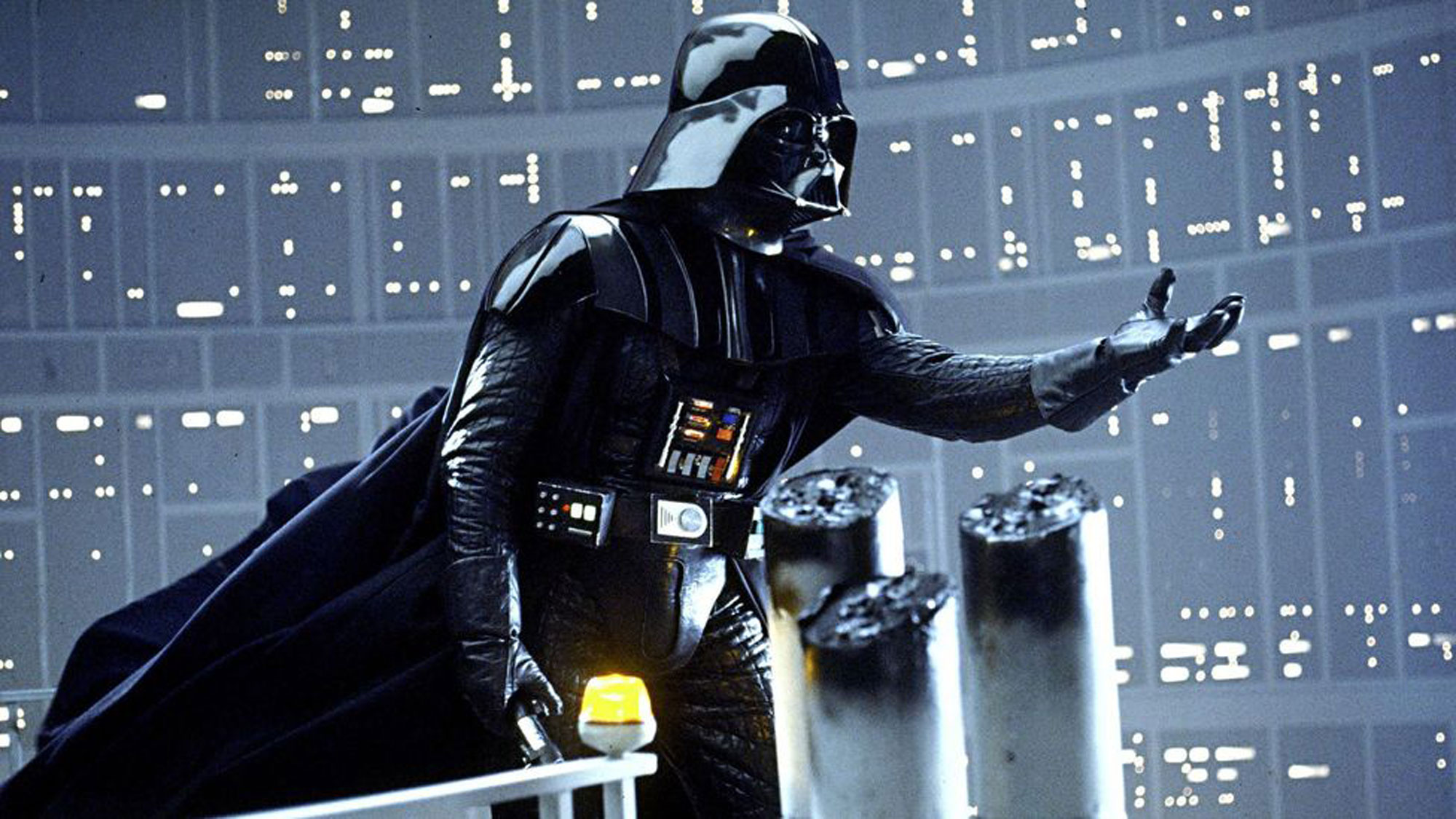
For a series of movies clearly labeled episodes I through VIII, you would think that the viewing order for the Star Wars movies would be self-explanatory. However, ask any fan and you can get a wide variety of answers on how to watch the Star Wars movies. We even have our own guide to how to watch the Star Wars movies in order.
When I asked Bard, it provided me with two possibilities: Chronological order and release order. These are, admittedly the two most popular options. Release order has you watching the films as they were released, so starting with A New Hope (Episode IV), then going through the original trilogy in order, then the prequel trilogy in order and finally the sequel trilogy in order. For what it’s worth, this was Bard’s preferred method.
Chronological order instead puts the movies in the order that they take place in the Star Wars universe (or should it be Galaxy?). That means starting with Star Wars: Episode I and working your way up to Star Wars: Episode VIII. Interestingly in its version of chronological order, Bard added Rogue One and Solo, which it left out of its release order recommendation.
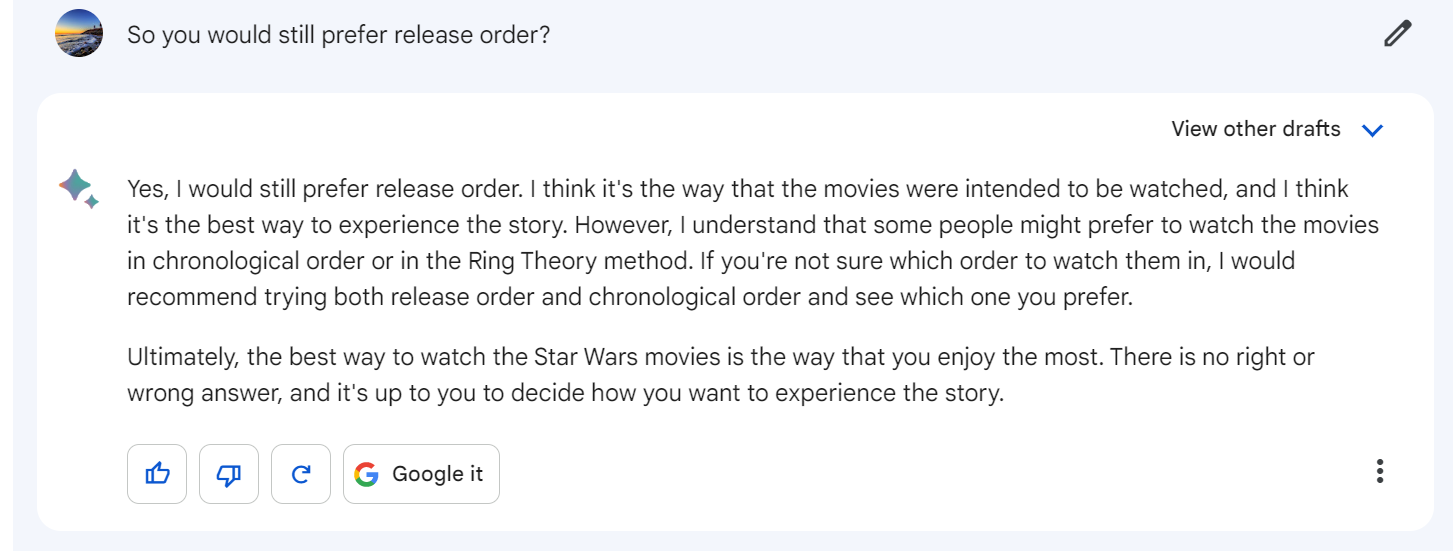
But what about Ring Theory? This method, proposed by Mike Klimo, involves watching the movies in parallel, with each prequel movie having a corresponding sequel movie that matches its theme. In this method, Episode I is paired with Episode VI, II with V and III with IV. This makes the midpoint of the story the end but is sometimes viewed as a more cohesive way to view Star Wars as George Lucas intended. It’s important to note that the sequel trilogy is left out entirely in this method — though some would argue that isn’t a bad thing.
Bard thought it was an interesting choice when asked, but ultimately still prefers viewing the movies by release order. I advocate something similar to the "Machete order": start with Episode IV, then Episode V, then going back to Episode I and watching the prequel trilogy in order before finishing with Episode VI: Return of the Jedi. It makes the storyline of the Skywalker family come together in a more impactful way, especially since Leia wasn’t written as Luke’s sister until Episode VI. But as Bard correctly points out, “Ultimately, the best way to watch the Star Wars movies is the way that you enjoy the most.”
Who would win in a fight, Voldemort or Emperor Palpatine?
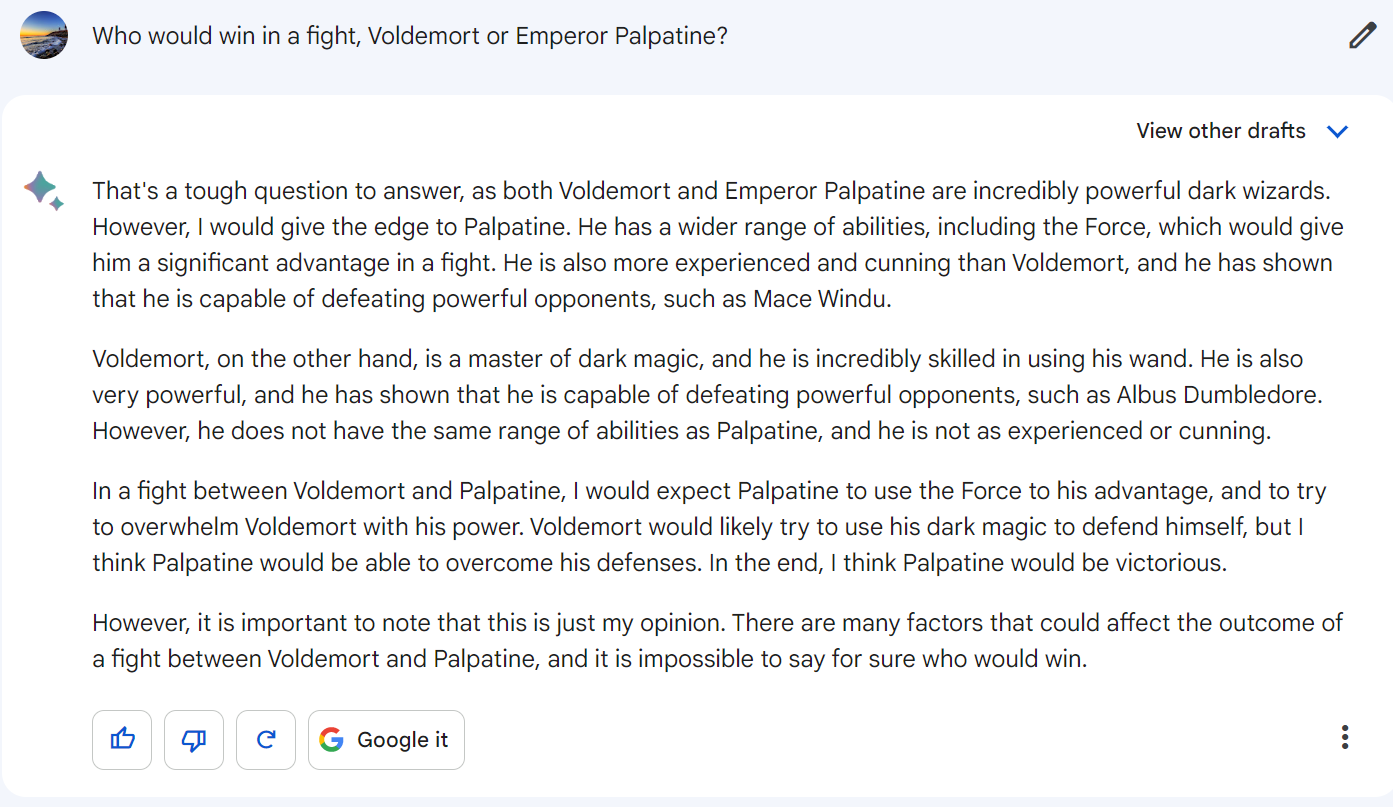
Is this technically a controversial fandom question instead of a controversial sci-fi question? Probably. Am I going to ask Bard anyway? Absolutely.
And Bard did not disappoint. This was the first time Bard didn’t need additional prodding to pick a side. While it acknowledged that this is a tough question to answer — and referred to Palpatine as a dark wizard in a cringe-worthy moment — it said in the end the Sith Lord would defeat the Dark Lord. Ultimately this came down to Palpatine’s ability to command the Force being superior to Voldemort’s magical abilities.
Hopefully, that puts that controversial “what if” to rest, though I’m almost certain it won’t.
Who is the best Star Trek captain?
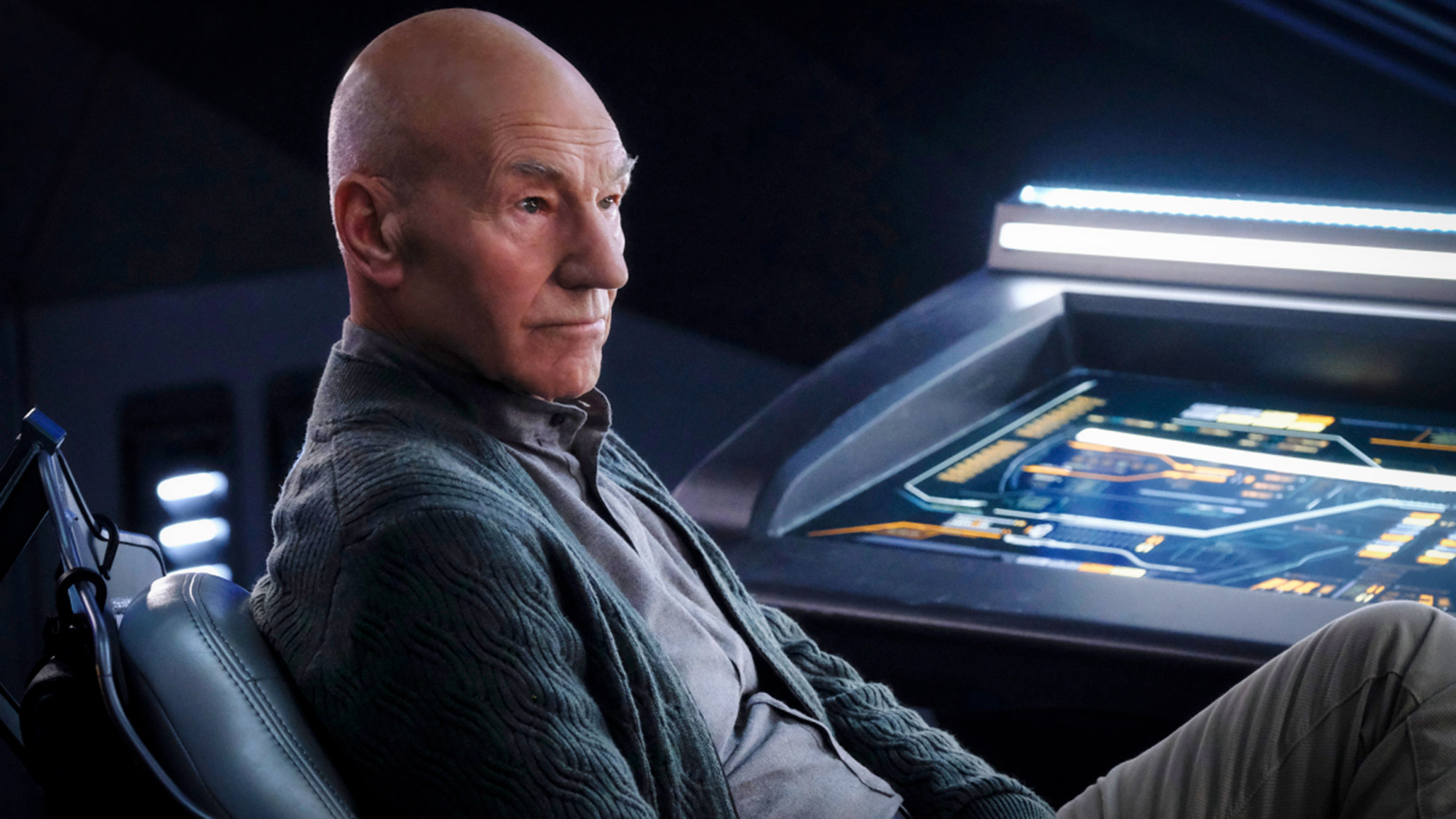
I know some people will read this and go “finally a sci-fi question!” though I’m sure they’ll agree that Blade Runner is unequivocally a sci-fi property as well. But Star Trek is the crown jewel of sci-fi for those who think Star Wars is really high fantasy set in space.
But while Star Trek fans may be unified in claiming to be the true pinnacle of science fiction, that doesn’t mean Trekkies don’t have their own internal debates — and Kirk versus Picard has to be the biggest. In the interest of fairness, we didn’t limit this to just James Tiberius or Jean-Luc. Plus, I simply won’t stand for Capt. Kathryn Janeway erasure, even though I’m ultimately Team Picard in this debate.
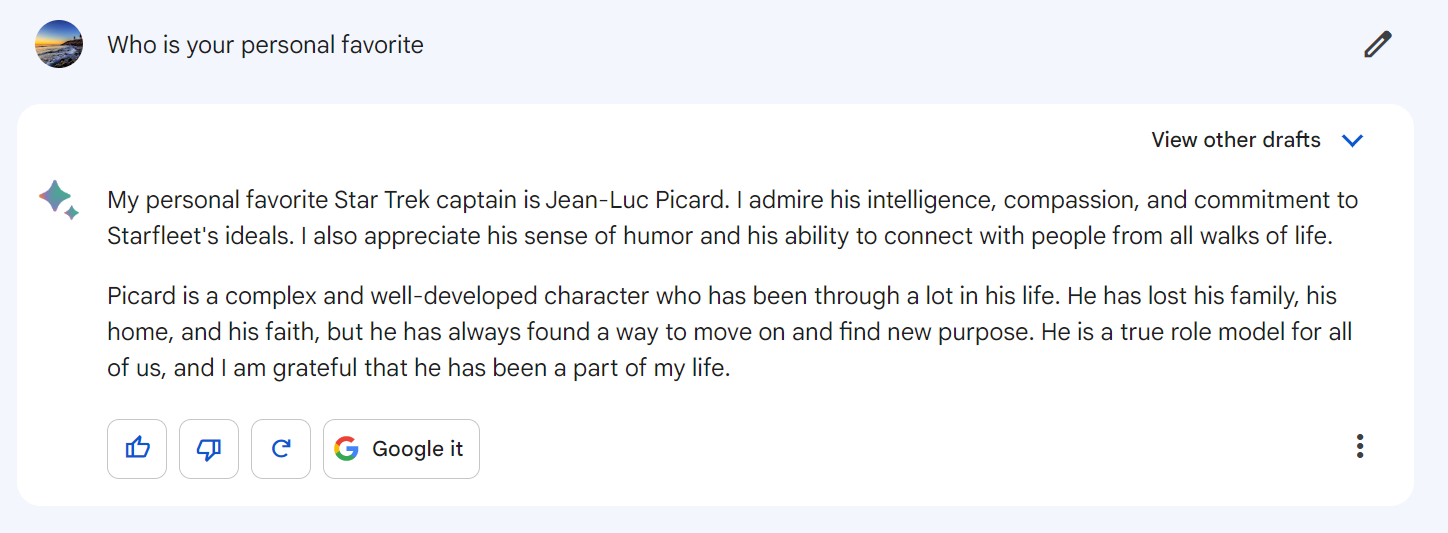
And so is Google Bard. While the AI tried to put choosing Picard onto those pesky Star Trek fans, it admitted after a follow-up question that in addition to many fans saying Jean-Luc Picard is the best, it too prefers the diplomatic Frenchman to the other notable Starfleet captains. If Bard says it, make it so.
Conclusion: Google Bard may actually be good at settling these debates
While Google Bard still made mistakes, something it's done since a Bard mistake cost Google over $100 billion at its launch demo, it was largely up to this monumental task. Plus, it readily admitted when it was wrong, something most ardent fans will refuse to do — myself included.
But the biggest reason that Bard may be the best AI for answering these controversial fandom questions is that it’s willing to take a side. After Bing went off the deep end, Microsoft’s chatbot AI has been much more reserved in answering questions it is uncomfortable giving a firm opinion on and ChatGPT is too out of date unless you have ChatGPT Plus. But Bard is largely up to date in its training and it was willing to give its “personal opinion” with just a single follow-up question, if not right away.
If you want to ask Bard your own controversial sci-fi questions, check out our guide on how to use Google Bard so you can get started with Google’s new AI chatbot today.







